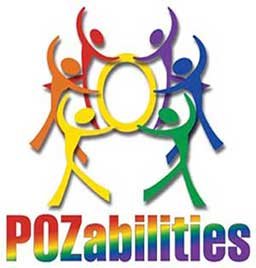Healthy Aging with HIV
Half of Americans living with HIV are 50 and older. Most contracted HIV at a younger age and are living longer because they are engaged in HIV/AIDS care and benefiting from effective treatments. Other were born with HIV and have had the disease for 20 yeas or more. A significant number of people contracted HIV after age 50. in 2015, 17% of new HIV infections were among persons over 50. All this according to the CDC.
As with the general population, age brings on new health problems. Heart disease, cancer, bone disease, and kidney problems Often these conditions appear earlier in people with HIV. Not everyone is affected the same way. “Someone might have HIV, heart disease, and kidney disease but still be able to go out and play tennis every day. And then someone who’s the same age and who has the exact same conditions might be having a lot of trouble with activities of daily living and might be in a nursing home”, explains Meredith Greene, MD UCSF Division of Geriatrics.
THE KEYS TO HEALTHY AGING WITH HIV
The keys to living a healthier life as you age seem simple enough but daily attention is needed to attain and maintain a healthier life.
Follow your doctor’s advice.
Take all medications as prescribed,
Eat a nutritious, balanced diet.
You don’t have to be a gym rat, walking, yoga and rubber band exercises work well.
Avoid substances that are bad for you,
Keep track of your overall health and tell your doctor about any changes in your body. Be an active partner and bring your questions and concerns to every appointment.
Adapted from “Coming of Age” jusrti.org
EAT A HEALTHY DIET
Food helps the body fight infection and gives it energy, and the body needs the right foods to stay strong. If you’re not sure how to eat what is best for you, ask a nutritionist for help.
Fitness guru Nelson Verger has some great nutrition tips…
Getting enough water every day is important for your health. Drinking water can prevent dehydration, a condition that can cause unclear thinking, result in mood change, cause your body to overheat, and lead to constipation and kidney stones.
EXERCISE
As muscles, joints and bones age they may become more susceptible to more injury and slower repair. Exercise can help and improve mood, better immune function There is robust evidence that exercise lowers blood pressure and reduces insulin resistance slowing the development of type-2 diabetes, and lowers total cholesterol levels while increasing the good cholesterol.
Regular low-level exercise is an excellent way to start off an exercise program 30 to 60 minutes of brisk walking is a good way to start. Weight training is the best way to promote healthy bones and to increase muscle mass.
TOO MANY PILLS?
People tend to have more illnesses as they age. As a result, many older adults with HIV take many pills for other conditions. While all the meds you take are needed, taking many meds makes it harder to manage them all. Also, the more pills you take, the more likely you are to have side effects. Finally, taking many meds can lead to drug interactions. Check your drug interactions and discuss them with your doctor.
BROWN BAG CHECK
Put everything that goes into your mouth (prescription meds, over-the-counter meds like Tylenol or Nyquil, vitamins, herbs, even things like Rolaids) and put them all in a bag. Bring the bag to your next appointment and ask your doctor if any pill should be stopped or changed. Your pharmacist is also a good person to help you with this.
ALCOHOL, SUBSTANCE ABUSE AND SMOKING
Some studies have shown that HIV positive people are twice as likely to participate in heavy drinking and substance abuse than those who are not. People who abuse alcohol and drugs while undergoing HIV treatment are much more likely to experience a number of complications, including increased infections and liver damage.
Recovering from alcohol abuse and addiction is important.
These organizations have recovery programs for individuals who are HIV positive.
SMOKING
In itself, smoking does not make HIV infection worse. Levels of smoking among people with HIV are higher than in the general population and carry the same accompanying health risks. Smoking increases the risk of heart disease, high blood pressure, and stroke. Smoking increases the risk of a number of cancers, including lung cancer. Studies have shown that smoking is the main risk factor for non-AIDS-defining cancers, such as liver cancer, in people with HIV.
Giving up smoking is hard but there are things you can do to help you quit. Avoiding ‘triggers’ – activities that you associate with smoking – where possible, may help. Exercise can also be helpful. Some people find that alternative therapies such as acupuncture and hypnotherapy help them stop smoking. Quit smoking help and resources in San Diego.
CHECK IN WITH YOUR BODY
BRAIN FUNCTION AND MEMORY
HIV itself can also damage brain cells. This makes brain problems more likely in people with HIV compared with those who are HIV-negative. HIV can change brain function, affecting your work, social, and family life in ways like this:
Memory problems, lower reading and math skills, lower attention, and problems dealing with information.
Anxiety, lack of interest, and depression.
Shaky hands, making it hard to hold utensils or get dressed; poor leg movements leading to falls.
Memory problems can cause trouble with health and money down the line. Plan ahead. Think of someone you trust and assign them to make decisions about money and health. This person is commonly referred to as a “proxy”. Your proxy will be a backup if the day comes when you cannot make decisions on your own. Tell him or her in advance how you want your money and health handled. If you do not know how to plan for your future health, ask your doctor. If you do not know how to pay for your future finances, ask a lawyer.
Make an Advance Health Care Directive and give copies to your lawyer, family members, and the person you designate to make your decisions. Keep your copy somewhere you can easily get to in case you need it in an emergency.
MENTAL HEALTH
Aging can bring on increased illness or disability often leading to a smaller circle of friends and support networks. The loss of a partner, an occupation, or a previous lifestyle may result in stress, depression and isolation.
Psychological interventions can help individuals cope with the changes aging brings. Maintaining social interaction and support is of critical importance in addressing depression, loneliness and isolation.
Seeking mental health care can significantly improve your life. Support Groups and increased
Social and Recreational Activities can improve mental health.
Ways to help improve mental health and well-being include:
Exercise – Regular exercise may help improve symptoms of depression and decrease stress. When you exercise, your brain releases chemicals called endorphins. These chemicals help improve your mood.
Meditation – Recent studies suggest that mindfulness meditation can help ease depression, anxiety, and stress.
FRAILTY
Frailty is a combination of fatigue and weakness, a slowing of physical and mental agility, and a loss of height due to a gradual disintegration of the spine. The body cannot handle problems as well as it should. When frail people have an infection, they cannot fight it off very well. When they have accidents, their injury is worse than in stronger people. When they work or exercise, they tire easily.
They slow down and are limited in what they can do. It is worsened by each period of physical or mental stress and associated with an inability to regain health after an acute event, such as an infection or a fall. Studies have shown that having a low CD4 count is associated with frailty. Exercise can help build bone and muscle strength.
Bone Health
Ageing and HIV infection can weaken bones, making them more brittle and more likely to break (fracture).
Osteoporosis (literally bones with holes) is a condition where the bones become brittle, and since they are less flexible become more susceptible to fracturing.
Osteopenia is the term used to describe the thinning of bones before osteoporosis develops.
Osteonecrosis, also known as avascular necrosis, is when bone dies, often due to poor blood supply to damaged bone. This usually occurs at the top of the thigh bone, near the hip joint
Excess alcohol and caffeine consumption, tobacco smoking and lack of exercise can lead to osteopenia and osteoporosis, as can a lack of calcium and vitamins (especially vitamin D) in the diet.
Some antiretroviral drugs as well as corticosteroids, may result in decreased bone density. Diabetes, liver disease, kidney disease or a family history of osteoporosis can decrease bone heath.
Activities such as weight-lifting, hiking, swimming, and running may improve bone density and lower the risk for developing problems.
KIDNEY DISEASE
Kidney disease is increasingly common in those ageing with HIV. It is vital to regularly check for it in order to prevent any further damage as deterioration in kidney function is irreversible. Risk factors for developing kidney disease include high blood pressure, which can occur with HIV infection or be associated with ageing. HIV infection can also directly cause kidney disease. Some antiretroviral can cause renal disease including development of kidney stones. Diabetes can lead to kidney disease, especially if glucose levels in the blood are often too high. Ageing commonly leads to reduced blood supply to the kidney and a slow decline in function. Recreational drug use can damage the kidneys. Excessive use of pain killers, especially certain anti-inflammatory medications can also lead to kidney disease.
LIVER DISEASE
Liver disease is common in HIV infection, mainly due to co-infection with hepatitis B and/or C. Other causes are excessive use of alcohol and recreational drugs and long-term exposure to some antiretrovirals and other drugs used to treat associated infections. It is also thought that HIV infection itself may damage the liver.
Liver disease may progress slowly, but in those co-infected with HIV and Hepatitis Band/or C, the rate of disease progression can be faster. Over time the liver may become scarred, a process known as fibrosis, which may lead to severe damage, called cirrhosis. This is a risk factor for the development of cancer of the liver.
SEXUAL HEALTH
Sexual function changes as people age and they can cause a strain on their sex life. As people age, their sex hormones decrease, and they may take longer to become aroused and achieve orgasm. Men may take longer to get an erection. Women may have vaginal dryness. These changes can make sex more difficult.
In addition, age-related illnesses can limit your sexual activity. For example, arthritis can make it difficult to get into sexual positions, and heart disease can make it tiring to have sex. Problems getting or maintaining an erection may make condom use difficult.
As you age, it might not be possible to get back the sexual function you had in your twenties. Instead, try to make the best of what you have now. If you need help with how to make the most of your sexual function, ask your doctor or see a sex specialist.












